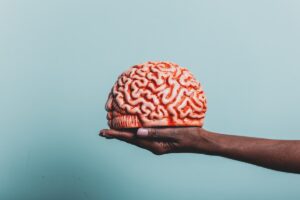Most drug and alcohol treatment programs fall into one of two categories: inpatient or outpatient rehabilitation. Inpatient centers are intensive residential recovery programs designed to treat individuals with severe and long-lasting addictions. Outpatient rehabilitation centers are more flexible programs that allow individuals to live at home in between treatment sessions. Outpatient programs also allow individuals to work or attend school as they get sober.
What Exactly Is Outpatient Rehab?
Outpatient rehabilitation is a form of addiction treatment that combines scheduled medical and psychological care with education about addiction, healthy coping skills, nutrition, life skills, and aftercare support. Instead of living onsite at a rehab facility, individuals enrolled in outpatient addiction programs visit treatment centers, mental health clinics, hospitals, and counselors’ offices on certain days of the week. Even though outpatient rehabilitation is flexible, individuals are required to check into their treatment sessions at their scheduled time. After the treatment session ends, individuals live at home or in sober living programs until their next treatment.
Most outpatient programs require a minimum commitment of 6 hours a week over the course of 10-12 weeks. More intensive forms of outpatient care can require up to 20 hours of treatment per week. Individuals enrolled in weekend outpatient programs typically commit to 6 to 10 hours of treatment that generally takes place on Friday evenings and Saturday and Sunday mornings. The length of time individuals spend in outpatient care varies from person to person, but The National Institute of Drug Abuse (NIDA) has found that rehabilitation tends to be more successful when individuals participate in outpatient treatment for at least 3 months.
Any individual looking to recover from addiction challenges can enroll in outpatient care, but this form of addiction treatment is best suited for individuals with mild to moderate substance abuse challenges who are serious about getting sober. Outpatient rehab can also be an ideal form of treatment for people who have already completed a residential program and need ongoing support. Outpatient treatment also benefits individuals who need to keep working while they recover.
Even though outpatient rehab doesn’t have a residential requirement, outpatient treatment has the same recovery components as residential rehabilitation programs.
Components of Outpatient Rehab
Generally, when people think of addiction rehab, they imagine someone going away to a dedicated location for 30 days or more to live in a highly structured setting surrounded by therapists, doctors, and other recovering addicts. While some addiction programs do operate that way, many do not. Addiction treatment can also look like individuals staying close to home, working, attending school, and coming and going to scheduled treatment sessions.
The primary components of these outpatient treatment sessions can include:
- Medical care. Individuals enrolled in outpatient addiction treatment programs have scheduled appointments with medical professionals. During these appointments, doctors, nurses, and nurse practitioners will assess an individual’s physical health. The medical team will also monitor an individual’s health throughout the recovery process. Should pressing issues arise, the medical team can refer individuals to a primary care physician or specialist for further care.
- Therapy. Most outpatient programs provide a combination of individual and group therapy sessions to identify and resolve issues and challenges related to addiction. Therapy can help individuals make healthier choices, manage stress, improve communication skills, and develop fresh insights about their life and experiences.
- Family counseling. Addiction can affect a family just as much as the person living with substance abuse challenges. Using drugs and alcohol can destroy trust, cause arguments, trigger stress, weaken family bonds, and disrupt the family structure. Family therapy can help resolve these issues, reduce conflict, restore trust, enhance communication, and heal wounds caused by addiction.
Some outpatient programs also include:
- Medication-assisted treatment (MAT). MAT combines medication, counseling, and behavioral therapy to help treat alcohol and opioid addiction. The medications used in this type of treatment can help reduce cravings and prevent relapse. MAT also normalizes brain chemistry, treats and eases symptoms of withdrawal, and blocks the effects of alcohol and opioids.
- Mental health counseling and dual diagnosis treatment. Many people grappling with addiction also live with debilitating mental health conditions. Outpatient programs that offer dual diagnosis programs can help treat individuals with addiction and mental health conditions simultaneously. These programs also include medications and therapies specifically geared toward mental wellness.
Types of Outpatient Treatment
There are several different types of outpatient addiction rehabilitation programs. For example, individuals can choose to enroll in:
- Full-day treatment programs (FDT). FDTs are the most intensive type of outpatient rehabilitation and feel the most like inpatient care. Even though individuals don’t reside at a hospital or clinic, they must report to their treatment program for treatment 5 to 7 days a week. Depending on an individual’s needs, treatment sessions can last anywhere from 3 to 8 hours a day. Many people use FDTs as a step down from inpatient care, but full-day treatment programs can also be a starting point for drug and alcohol rehabilitation.
- Half-day treatment programs (HDT). Half-day treatment programs are ideal for people who need intensive treatment but have work, school, and family responsibilities that require them to seek outpatient rehabilitation. HDTs tend to have more flexibility than FDTs, but less structure than residential programs. Most individuals in HDTs attend treatment sessions 3 to 4 times a week. As individuals meet predetermined milestones listed in their treatment plan, the number of treatment sessions they need to attend per week can decrease.
- Outpatient programs (OP). Most OPs are best suited for people who have been in inpatient care before or have completed higher levels of outpatient care. Because of this, many outpatient programs have higher levels of flexibility. Typically, individuals in the program meet once or twice a week for 1 or 2 hours at a time.
- Continuing care programs. Also referred to as aftercare, continuing care outpatient programs primarily consist of counseling and support groups that help individuals feel connected, supported, and held accountable during their continued recovery journey. Many individuals enroll in these programs after leaving inpatient care or half-day treatment care. The groups, which are facilitated by licensed therapists, typically meet once a week.
- Outpatient care for co-occurring mental health disorders. This form of outpatient rehabilitation focuses on treating recovering individuals with co-occurring mental health disorders that can make achieving sobriety challenging. Individuals enrolled in this type of program may need to spend more time in treatment because they’re addressing more than one condition. But these programs can be an ideal form of treatment for people with mild addiction and a stable, less severe mental health condition.
Here at Aftermath Addiction Treatment, we offer:
- Virtual HDT and FDT
- Full-day treatment program
- Half-day treatment program
- Outpatient program
Benefits Of Outpatient Addiction Treatment
People recovering from addiction can benefit from outpatient addiction treatment in many ways. For example, individuals receiving outpatient care may have:
- Increased levels of autonomy compared to inpatient rehab
- More flexibility to schedule treatment sessions
- Freedom to maintain work, school, or family commitments
- The ability to live at home while recovering from substance abuse disorders
- An easier transition back into their community and home environment after treatment
Outpatient rehab also lets individuals maintain their job while they work toward sobriety.
How Outpatient Rehab Lets You Keep Working
Approximately 75 percent of people struggling with addiction challenges have jobs and live regular lives that include paying bills, supporting families, building a career, and paying down debt. Because of this, most people can’t simply leave their jobs for several weeks at a time to receive treatment. Luckily, outpatient addiction treatment programs allow people to keep working as they get sober and recover from addiction. Here’s how the process works.
- Treatment sessions are scheduled in advance. Inpatient treatment happens 24 hours a day and 7 days a week. Outpatient treatment sessions are scheduled in advance. This allows individuals to avoid conflicts with their work schedule. For example, if individuals know that their treatment sessions take place in the morning, they can work an afternoon shift or vice versa. Having treatment sessions scheduled in advance also allows individuals to talk with their boss about a schedule that works around their treatment program.
- Treatment sessions don’t occur every day. Unlike an inpatient program, most outpatient treatment sessions do not happen every day. This allows individuals to work an alternative 40-hour-per-week schedule that corresponds with their treatment sessions. Many employers offer flexible work schedules which are alternatives to the traditional 9 to 5, 40-hour work week. Flexible work schedules allow individuals to change their arrival or departure times. Individuals may also choose to work part-time.
- Treatment sessions only take up a portion of the day. Unless individuals are enrolled in certain types of full-day treatment programs, most outpatient programs only meet during certain times of the day. This can be ideal for individuals looking to work part-time. Individuals looking to work full-time can begin their work shift after their treatment session ends. Others might choose to attend treatment sessions after their workday.
Here at Aftermath Addiction Treatment, our outpatient treatment programs consist of 1 or 2 days of individual and group therapy sessions. As individuals take on more responsibilities and obligations, we work with their busy schedules as they transition back into their daily routines. We also offer a virtual outpatient program that meets digitally 5 days a week from 9 am to 12:30 pm.
How Do Aftermath’s Outpatient Rehab Programs Help Individuals Get Sober?
Our team here at Aftermath is dedicated to helping individuals transition back into their everyday lives. To do that, we offer a wide range of services that include:
- Cognitive-behavioral therapy (CBT). This form of therapy can help individuals uncover the underlying causes of their addiction, worries, and fears. CBT can also help individuals develop effective coping and problem-solving skills, look at situations in new, less frightening ways, and learn how to relax in the midst of challenging situations.
- Dialectical behavioral therapy (DBT). Combining behavioral and talk therapy, DBT can help individuals stop destructive habits, regulate their emotions, better tolerate distressing situations, and maintain healthy relationships.
- Rational emotive behavioral therapy (REBT). This approach focuses on helping individuals deal with irrational beliefs by helping them manage their emotions, thoughts, and behaviors in a healthier, more realistic way.
- Motivational interviewing. This method of counseling aims to inspire individuals to achieve and maintain sobriety by identifying their core values. Instead of being fueled by a desire to get high, individuals enrolled in motivational interviewing are driven by their own goals for the future.
- Eye movement desensitization and reprocessing (EMDR) is a trauma therapy that helps individuals experiencing psychological distress find relief. The goal of EMDR is to help individuals lessen the amount of distress they feel when they think about disturbing thoughts and memories.
- 12-step modalities encourage honest reflection, introspection, accountability, and healthy social engagement.
- Nutrition, health, and wellness education. Nutrition is an important aspect of addiction recovery. Having a balanced diet can help the brain relearn healthy habits. Consuming brain-friendly nutrients can help strengthen individuals’ physical health. Healthy eating can also improve mood, mental health, energy levels, and memory.
- Anger and stress management. Stress and anger are two of the most common risk factors for relapse. By helping individuals learn how to manage their anger and stress, our outpatient programs can help individuals avoid relapse.
- Art and music therapy. These creative forms of therapy can help reduce depression, ease stress and anxiety, heal difficult emotions and repressed memories, distract individuals from cravings, increase concentration and focus, and encourage healthy self-expression and communication.
Helping You Maintain Your Job While You Recover
You don’t have to quit your job or give up a career you love to get sober. Outpatient rehabilitation allows individuals to maintain their jobs, work toward their sobriety, and recover from addiction at the same time. Thanks to outpatient addiction programs, you can:
- Schedule your treatment sessions around your work schedule
- Talk to your employer about a temporary flexible work schedule
- Work a part-time job until your treatment sessions end
If none of those options work for you, you can look into our virtual OP and FDT programs. We can also help you learn about and enroll in an employee assistance program (EAP). Recovery can be challenging, but you can achieve and maintain sobriety. Let us help you get there. Contact us today to learn more.





